#Governors
Text
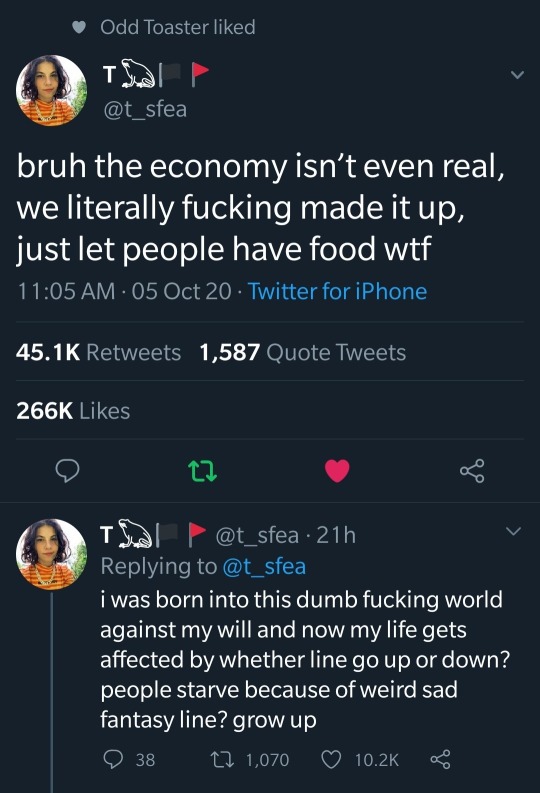
#communism#communist#socialism#socialist#social issues#economy#finance#markets#business#economics#business news#corrupt gop#democrats are corrupt#governors#alleged#billionaires#billionaire#eat the rich#tax the rich#expensive#wealth#money#luxury
3K notes
·
View notes
Text
Tuesday is Election Day in many parts of the US.
VOTE! 🗳 🇺🇸
A number of sites provide you with an opportunity to see who is on your ballot and what issues are being contested. They don't include an actual image of your ballot but they do let you know what's on it.
VOTE411 Voter Guide
Sample Ballot Lookup - Ballotpedia
Vote Informed on the Entire Ballot - BallotReady
Of course check the site of your local election authority. In some places it's the county clerk and in others it's a board of elections. The elections mentioned in this post are a small number of those around the US on November 7th.
Because of the GOP SCOTUS overturning of Roe v. Wade, state legislatures now determine whether a state supports reproductive freedom or not. State governments have been badly neglected by liberals for decades — and that situation needs to end.
Both chambers of the state legislature in Virginia are up for election on Tuesday. If both fall under Republican control then the state will join the rest of the South in restricting abortion.
Virginia is not the only state having elections for its state officials.
STATES HOLDING ELECTIONS FOR STATE LEGISLATURE
Virginia
New Jersey
Mississippi
Louisiana
STATES HOLDING ELECTIONS FOR GOVERNOR
Kentucky
Louisiana
Mississippi
There are numerous municipal elections, special elections, ballot measures, and constitutional amendments to be decided on Tuesday.
The biggie is the Ohio constitutional amendment on reproductive freedom. Voters in Ohio have the opportunity to overturn the gerrymandered Ohio Republican legislature's ban on abortion. Vote YES on Ohio Issue 1.
A very local but important contest is the special legislative election in New Hampshire to fill a vacancy in Hillsborough County District 3 (in the Nashua area). Right now Republicans have a one seat advantage in the New Hampshire House of Representatives. If Democrat Paige Beauchemin wins this seat then Republicans will be forced to share power with Democrats in the chamber.

Good candidates for federal office often emerge from state and local government. Before he was elected to the US Senate in 2004, Barack Obama served several terms in the Illinois legislature.
There is no such thing as an unimportant election.

#election 2023#vote!#reproductive freedom#roe v. wade#ohio issue 1#state legislatures#virginia#louisiana#new jersey#mississippi#governors#kentucky#new hampshire special election#paige beauchemin#there is no such thing as an unimportant election#vote blue no matter who#never miss an election#vote locally think nationally
70 notes
·
View notes
Photo
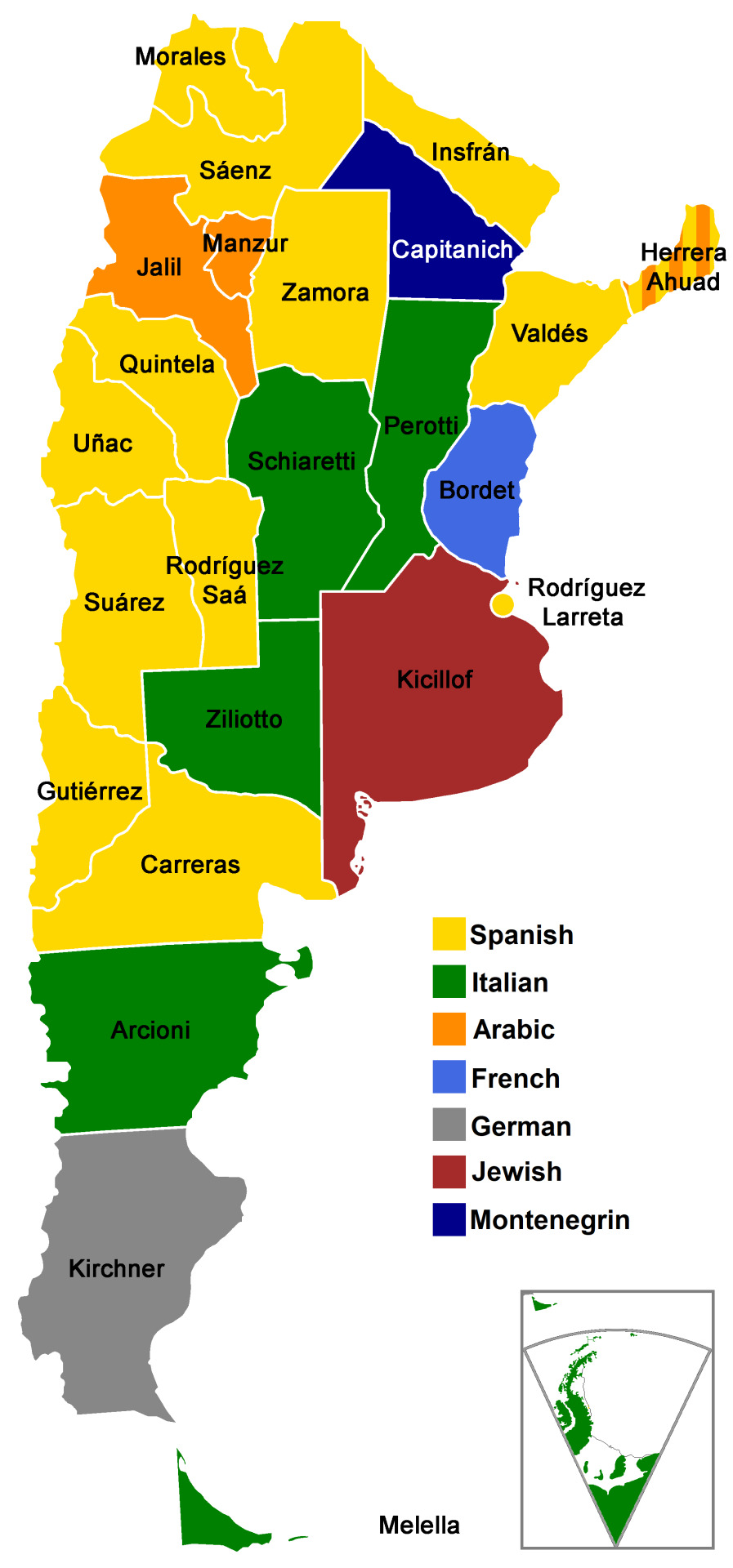
Surname origin of Argentina's provinces governors
104 notes
·
View notes
Note
Can we have your analysis of NY governors since Rockefeller like you did with the NYC mayors.
That's a bit trickier, but sure! (Interesting choice of starting point. No Al Smith, no FDR, no Lehman, no Dewey - that's a lot of famous NY governors out of the picture.)
Governors below the cut, because this one is going to run long.

Nelson Rockefeller (1959-1973):
Certainly a politically successful governor - the man won four elections in a row! - Rockefeller was the last of his kind, the quasi-liberal Northeastern Republican to which he gave his name. At the same time, when you dig into his record, there is as much to be ashamed of as to be proud of.
In the interests of fairness, let's disuss the positives first: Rockefeller believed in taxing and spending on a grand scale, whether that was for public works, state parks, state aid to education (SUNY grew sixfold during his tenure), low-income housing, pensions for public sector workers, mass transit, or Medicaid. On non-spending issues, Rocky was an early supporter of abortion rights, state-level civil rights legislation, the ERA, environmental conservation, and a state-level minimum wage.
When it came to the monuments that he hoped would become his legacy, Rockefeller liked to build big. Unfortunately, when it comes to the negatives of his governorship, they are of a similar scale. Chiefly, the problem was that Rocky was a pretty consistent "law and order" politician - the laws that authorized "stop and frisk" and "no-knock" warrants were passed with his enthusiastic support, state police payrolls and budgets balooned in size, and he was a consistent supporter of the death penalty pretty much until the end.
But when it comes to "law and order," two monuments stand taller than all the others: Attica and the drug laws.
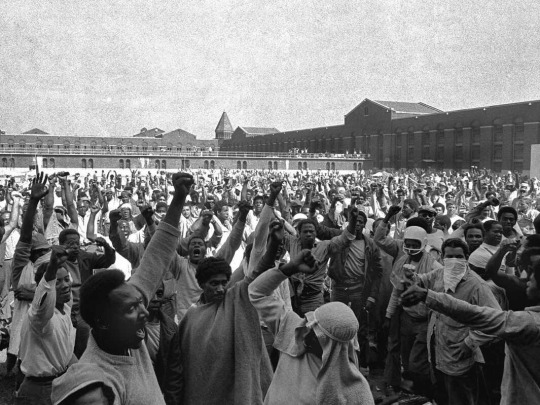
On September 9th, 1971, over a thousand incarcerated men (overwhelmingly men of color) seized control of the Attica Correctional Facility in a protest over living conditions and political rights. They took 42 correctional officers and staff hostages, issued a list of 33 demands, and then negotiated for four days in good faith. Refusing to meet with the inmates and unwilling to either remove the unpopular superintendent or grant amnesty for the uprising, Rockfeller instead sent in the state police, armed corrections officers (for some ungodly reason), and the National Guard and gave them free reign.
On the morning of September 13th, troopers dropped tear gas into the main yard and then just started shooting indiscriminately. In fifteen minutes, 29 inmates were murdered - including most of the uprising's leadership, who were targeted by name for execution - and so were 10 hostages. (Often shooting blindly into the billowing clouds of tear gas with shotguns, the troopers were so undisciplined that they wounded another five corrections officers and one state trooper in friendly fire incidents.) Another 85 inmates were wounded, and hundreds and hundreds of survivors were made to strip naked, crawl through mud and shit and broken glass, and then tortured by corrections officers.
Rockefeller covered all of this up. The governor claimed that the prisoners had committed "cold-blooded killings" of all the hostages, and particularly trapped himself by claiming that the prisoners had slit the throats of the hostages - medical examiners concluded that all of the hostages were killed by law enforcement bullets. Although forced by public opinion to establish a Special Commission to investigate what had happened, Rockefeller did his level best to ensure that the truth of what happened never got out (it did eventually come out, but it took years and many couragous whistleblowers and crusading lawyers to make that happen), to ensure that not a single trooper was held criminally resppnsible, and to avoid as long as possible paying any restitution to the families of the dead, let alone the survivors.
All because he didn't want to look weak on crime.
When it comes to the Drug Laws to which he put his name, it's hard to see them as anything less than a political stunt that ruined the lives of thousands and thousands of people. Rocky had previously supported liberal treatment and social services approaches to drugs, but he wanted to run for the Republican presidential nomination in 1976, so he did a 180 to burnish his "law and order" credentials.
Under his laws, selling as little as two ounces or merely possessing four ounces of opoids, cocaine, or marijuana would be punished with a minimum of 15 years to life and a maximum of 25 years to life. Over the decades since the enactment of the Rockefeller Drug Laws, some 150,000 people would be incarcerated for non-violent drug offenses in New York, over 90% of whom were black or Hispanic men. It took until 2009 for these laws to be dismantled.
All because he wanted to run for president.
Verdict: like Jekyll and Hyde. Both an asshole and not an asshole, depending on the issue.
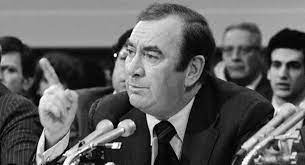
Hugh Carey (1975-1982):
The first Democratic governor of New York in almost 20 years, Carey was elected in the Democratic landslide of 1974. And like a lot of "Watergate baby" Democrats (like one Joseph Robinette Biden), Carey was an odd blend of fiscal conservative and social liberal.
This applied most immediately and most significantly to his handling of New York City's Fiscal Crisis. The city was massively in debt, New York financiers were engaging in a capital strike, the President of the United States was openly hoping for NYC's financial demise in order to punish American liberalism, and the one thing everyone knew and no one wanted to admit is that someone had to pay for a bailout.
As governor, Carey did bail out NYC - but at the cost of the city not only giving the bankers everything they had demanded (public sector layoffs, wage freezes, subway fare hikes, the closure of public hospitals, libraries, and fire stations, and the end of free tuition at CUNY), but also of surrendering the city's fiscal autonomy. As quid pro quo for state funds, Carey pushed through the creation of the Municipal Assistance Corporation (MAC) to handle the city's bonds and the Emergency Financial Control Board (EFCB) to control the city's taxation and budgets. These two unelected bodies continued in existance for decades, and set a precedent for the state government to call the shots when it came to local NYC governance, even while NYC's economy funded the state government.
All this at the same time as Carey was cutting income, capital gains, and corporate taxes for the wealthy, creating the modern suite of tax breaks for developers, and keeping state spending below the rate of inflation. On the flip side, he did build a bunch of fancy public works like the Javits Center, Battery Park City, and the South Street Seaport to attract tourists back to NYC.
However, on social issues Carey was quite progressive. On both the death penalty and abortion rights, he stopped the state legislature from rolling back reforms forced on them by the courts. He made the de-institutionalization of the mentally ill and the provision of community-based services a signature issue - although not enough to prevent a rise in homelessness among the mentally ill. Unlike Rockefeller, he tried to do the decent thing when it came to the aftermath of the Attica Rising by pardoning the rioters. Like Rockefeller, he was in favor of environmental regulation.
Verdict: Mostly an asshole. Meeting baseline expectations for a Democrat doesn't cancel out fucking over NYC for a generation.
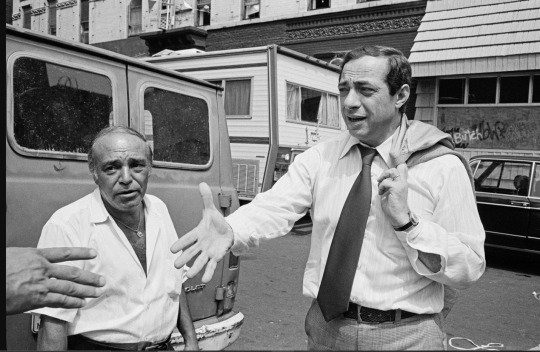
Mario Cuomo (1982-1994):
Writing about Cuomo the Elder is difficult, because for a generation of New Yorkers and others he represented liberal ideals and aspirations tbat were ultimately unconnected to the day-to-day business of governance. This was largely due to the way he exploded into national prominence with his "Tale of Two Cities" speech at the 1984 Democratic National Convention, which challenged the rosy rhetoric of Reagan's "Morning in America."
youtube
The problem is that, as governor, Mario Cuomo stressed "progressive pragmatism" and tried to straddle the line between liberal goals and business-friendly methods. As Saladin Ambar put it in American Cicero, "whereas Rockefeller oversaw a period of tremendous government expansion...Cuomo was later derided for having no big policy focus. His was an era of contraction, one of smaller progressive victories."
When we look at Cuomo's record, we see he prided himself on the "largest tax cut" in New York state history and balancing the budget through cutting spending, but also on expanding Medicaid to low-income children and pregnant women. He lowered the top income tax rate, but also increased the basic welfare grant. He trumpeted $500 million in state aid to education, but also spent $500 million to build new public prisons. He spent $850 million on environmental clean-up efforts, but $300 on paying down state debt.
Ultimately, the issue that defined Cuomo had nothing to do with economic policy or social spending - it was the death penalty. His opposition to the death penalty had cost him the mayoral election in 1977, but it won him the gubernatorial nomination in 1982 - both times in matchups against Ed Koch. As governor, he vetoed 12 different bills to restore New York's death penalty. Ultimately, it would be the issue that brought him down: running for a fourth term in 1994, Pataki attacked Cuomo for his oppositition to the death penalty. Highlighting a horrible case in which a child murder who had inexplicably been allowed to plead down to one count of manslaughter, and who then became a serial killer after serving his time in prison, Pataki hammered Cuomo as being soft on crime and the incumbent ended up winning a grand total of one county north of Yonkers (and losing Staten Island in the process).
Also, I have no patience for Cuomo's "Hamlet on the Hudson" bullshit when it came to seeking the Democratic presidential nomination in 1988 and 1992. If you're going to run, have the guts to say so.
Verdict: I'm not mad, I am disappoint.

George Pataki (1995-2005):
The great irony of the 1994 gubernatorial election is that Pataki would go on to reinstate the death penalty in his first year as governor - only to see the New York Court of Appeals declare it unconstitutional. Pataki prided himself on being "tough on crime," and ended up pushing through 100 laws increasing criminal penalties - which he erroneously claims caused crime rates to decrease.
When it comes to economic policy, Pataki was just as lousy as any other Republican - cutting income taxes on the rich and corporate taxes more than any other governor before him. This at the same time that he cut a million ooor people off of welfare. His commitment to the economic illogical of balanced budgets led him to propose significant spending cuts in 2003 even as New York was still wrestling with the economic fallout of 9/11, only to be overriden by the state legislature.
His social policies were somewhat better. There was a modest expansion of health care for the working poor through SCHIP, he supported gun control, he supported abortion rights, he was in favor of anti-discrimination laws to protect LGBT+ people but opposed gay marriage (which was fairly good for a Republican in the early 2000s), he did put some money into environmental programs. His education policy rather sucked - he was strongly pro-charter schools (boo) and micro-managed CUNY to get rid of remedial education.
Verdict: bit of an asshole, but less so than most Republicans.
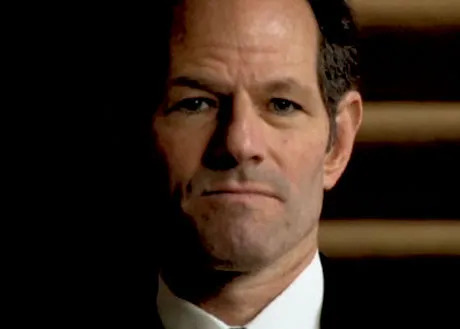
Eliot Spitzer (2007-2008):
It's hard to find much to say about Spitzer's time as governor, because he wasn't around for very long. Elected on the basis of his reputation as a crusading Attorney General, Spitzer came into office saying that he would "change the ethics of Albany." He spent most of his brief time as governor feuding with the (corrupt and convicted if it wasn't for the Supreme Court) leadership of the state legislature. While a lot of his proposals were quite good, Spitzer's "steamroller" strategy was pretty much ineffective in getting legislation passed (hey, turns out the Johnson Treatment is bullshit) and it's hard to point to a major accomplishment of his tenure as governor.
But what Spitzer is primarily remembered for is the prostitution scandal that brought him down. As someone who thinks sex work should be legal, my main issue with his behavior is that he was "a real weasel" about not wanting to use condoms and used his money to get his way. This is an occupational health and safety issue for sex workers, being able to insist on condom use and reject clients who refuse to use them is a labor rights issue for sex workers, and clients who try to use their wealth and power to undermine the autonomy of sex workers should be blacklisted.
Verdict: an incompetent and an asshole to sex workers.
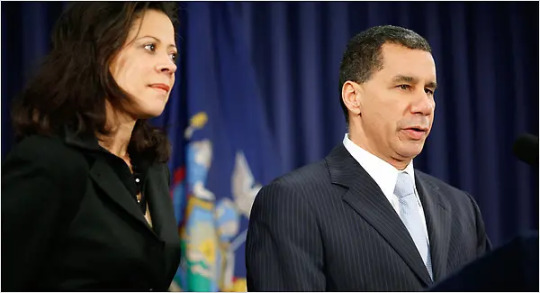
David Paterson (2008-2010):
Suddenly thrust into the limelight after Spitzer's resignation, David Paterson's tenure as governor started extremely unluckily, as both he and his wife admitted to having extamarital affairs the day after his inauguration - something that wouldn't have been as big a deal if it hadn't been for the Spitzer scandal intensifying the level of media scrutiny directed at the personal morality of elected officials.
He then had two weeks to negotiate the state budget at the height of the Great Recession, which hit particularly hard due to the outsized importance of Wall Street to New York's economy and state finances. This was never going to be a good budget, but it was highly noticeable that Paterson's budget leaned heavily on spending cuts rather than using state reserves or taxing the wealthy, while providing significant tax cuts to middle-class and affluent homeowners.
This was rather surprising given Paterson's liberal roots as a former Dinkins staffer. It was similarly surprising that when Paterson was called upon to appoint someone to fill the U.S Senate seat left vacant by Hillary Clinton becoming Secretary of State, that he went with Blue Dog Kirsten Gillibrand rather than Caroline Kennedy (the leading scion of the Kennedy family in New York) or Andrew Cuomo (the heir to his father's legacy). This led to something of a feeling that Paterson was turning out to be something of a liberal in name only.
The main issue where Paterson's liberalism seems to have remained strong was gay marriage, where Paterson did something of an end-run around the deadlocked state legislature by ordering New York State agencies to recognize out of state marriage licenses from same-sex couples. While successful in his efforts, this didn't help Paterson win support within the state legislature for a statutory legalization of gay marriage, and the bill went down to a 38-24 defeat in the State Senate.
Ultimately, however, I think Paterson's tenure as governor was hamstrung by the deadlock in the State Senate, which was evenly split between Democrats and Republicans with no lieutenant governor to break the tie (thanks to some truly stupid decisions by state courts on the issue). While most of the chaos had to do with two truly appalling conservative Democrats going over to the Republican side in exchange for personal considerations and wasn't really Paterson's fault, it did prevent him from achieving many legislative wins ahead of the primary election in 2010 - although two late-breaking scandals really did the fatal damage to his further political hopes.
One unanswered question is to what extent Paterson was knifed by then-Attorney General Andrew Cuomo, either/both in revenge for being overlooked for the U.S Senate and/or to clear the way for Cuomo's 2010 primary run for governor. After all, it was Cuomo who was handling the investigations into Paterson, who torpedoed Paterson's attempt to end the Senate crisis by appointing a new lieutenant governor, and presumably Cuomo who lobbied Obama to persuade Paterson to drop out. Moreover, given Cuomo's later penchant for conservative Democrats enabling Republican control of the State Senate, it's hard to avoid conspiracy theorizing that he had something to do with Monserrate and Espada's parliamentary coup.
Verdict: while Paterson was dealt the worst possible hand when he became governor, he played it badly. Kind of an asshole.

Andrew Cuomo (2011-2021):
In the interests of full disclosure, it's going to be very difficult for me to be objective about Andrew Cuomo since I was involved in several efforts to defeat him for public office and I personally loathe the man. So I'm going to try to focus as much as possible on what he did as governor of New York, because hopefully the focus on concrete actions will keep me from going off the rails.
I think the first thing to start with is that Cuomo deliberately undermined Democratic governance of the state of New York by engineering the formation of the Independent Democratic Conference, a group of conservative Democratic state senator who handed back control of the State Senate to the Republicans after Democrats won control of that chamber in the 2012 election.
Cuomo betrayed his own party and the policy agenda he nominally supported and had run for office on because he didn't want to be pressured by the left wing of the Democratic Party on progressive priorities and preferred to cut "moderate compromises" with the Republican leadership. Cuomo maintained this unholy coalition until it became a stumbling block to his hopes of winning the Democratic presidential nomination, at which point he terminated it just before the IDC's members were swept out of office by an enraged electorate.
As baseline expectations for Democratic elected officials go, I feel that supporting Democratic control of government and opposing conspiracies to hand over control of government to the Republican Party is about the minimum.
The second thing to understand about Cuomo is that while he has a long list of seemingly progressive accomplishments - gay marriage, gun control, marijuana legalization, paid family leave, and a $15 minimum wage, etc. - virtually all of them are cases in which actual progressive groups and elected officials had been pushing for years, where Cuomo had blocked their efforts either through executive inaction or outright opposition to legislation, and where he eventually took credit for compromise measures that repeatedly turned out to have regressive stings in the tail that made them much weaker.
And all of that is before he was brought down by his own manifest corruption, his total incompetence on COVID despite becoming a media darling on the issue, and his long history of sexual harassment and assault.
Verdict: the biggest asshole in New York political history.

Kathy Hochul (2021-present):
Normally, there wouldn't be much to say about a brand-new governor who was unexpectedly elevated to office by their predecessor's resignation in disgrace. For a good while, all that Hochul seemed to aspire to be was "not Andrew Cuomo" - not a bully, not a misogynist, willing to listen to everybody.
More recently, we've learned a bit more who Hochul is through how she's chosen to spend her political capital. In all but one case - building more affordable housing in suburban upstate New York - Hochul has shown herself to be a relentlessly conservative Democrat, who's willing to spend political capital in order to dismantle bail reform or try to get a conservative judge appointed to the Court of Appeal or appoint a Republican to lead the public power utility.
Except the problem for Hochul in her attempt to be Andrew Cuomo but without the misogyny is that Democrats control both houses of the legislature now, and the legislature from the leadership to the rank-and-file is no longer subservient to the governor as they were under Cuomo. When Hochul put up LaSalle for the Court of Appeals, she was repeatedly humiliated by getting stomped in committee and floor votes. When Hochul tried to appoint Justin Driscoll to the New York Power Authority, he was defeated too. And sadly, when Hochul tried to get her housing proposal by including it in the budget, suburban legislators stripped it out.
That's kind of the problem with Hochul: she's not very good when it comes to the core skills of a politician. She's not good at reading the room, otherwise she never would have nominated LaSalle after labor told her that anyone but him would be acceptable. She's not good at counting votes, otherwise she wouldn't have pushed votes on LaSalle and Driscoll and the housing package that she ended up losing by lopsided margins. And she's not very good at campaigning either, otherwise she wouldn't have needed to be bailed out by the progressives at the last minute in the 2022 election.
Verdict: an asshole, but thankfully not as good at being an asshole as Cuomo was.
40 notes
·
View notes
Note
If it ever has happened when was the last time a governor of a state was assassinated or shot by a assassin? Was it when finestein rose to power?
I'm pretty sure that the last time any Governor was actually shot in an assassination attempt was when George Wallace was running for President in 1972 while he was Governor of Alabama and was paralyzed from the waist down in a shooting at a campaign stop in Maryland. Other than that, I think the only relatively recent assassination attempt where a Governor was wounded was when Texas Governor John Connally was seriously wounded while riding in JFK's limo at the time of President Kennedy's assassination in Dallas. Of course, Connally was not the target of that shooting, but he was badly wounded.
Dianne Feinstein never actually served as Governor (she lost a race for Governor of California to Pete Wilson in 1990). As president of the San Francisco Board of Supervisors, she assumed the mayorship when Mayor George Moscone and Supervisor Harvey Milk were assassinated in City Hall by disgruntled former Supervisor Dan White in 1978.
#Governors#Assassination Attempts#Assassinations#George Wallace#Governor of Alabama#John Connally#Governor of Texas#George Wallace Assassination Attempt#Assassination of John F. Kennedy#JFK Assassination#History#Politics#Mayor George Moscone#San Francisco#Mayor of San Francisco#Harvey Milk#Dan White#Dianne Feinstein#Moscone-Milk Assassinations#Political Assassinations#Political History#San Francisco History#1972 Election
10 notes
·
View notes
Link
From the February 17, 2024 roundup:
There has never been much suspense in the presidential primaries. But the future of both political parties is at stake in the nominating battles further down the ballot.
Some of the biggest contests are in March, when eight states are holding their primaries for Congress, four for Senate and one for governor. There’s plenty of action if you just scroll down the ballot.
The article goes on to detail key primary races in several states/
2 notes
·
View notes
Text
Texas, Florida and Georgia you could have done so much better.
#us politics#2022 elections#beto o'rourke#charlie crist#womens rights#gun control#do better#disappointed#texas#florida is fucked anyway#georgia#stacy abrams#governors
22 notes
·
View notes
Text
Janet Mills

Janet Mills was born in 1947 in Farmington, Maine. In 2002, Mills was elected to Maine's House of Representatives. She was the first woman to serve as Maine's attorney general, a position she held from 2009 until 2011 and again from 2013 until 2019. In 2018, Mills became the first woman elected governor of Maine. Four years later, she won a second term in office.
13 notes
·
View notes
Text
Beware the Educational Consultant
Got a problem? Let’s get in a consultant to sort it out for us. They all play slightly different roles depending on the school need, but they monetise their allegedly prestigious work CVs and ‘experience’. This is repackaged, bought and sold at high rates back to schools. This blog will consider their uses in more detail.
Getting in an EC is the knee-jerk reaction from so many Heads. The more…

View On WordPress
#306#appraisal#consultancy#education#educational consultant#educational leaderships#governance#governors#HMC#leadership#management#schools#teaching
2 notes
·
View notes
Text
FOLKS FROM AROUND THE U.S.A.
I’ve been thinking about how little I know about all the governors from around the United States of A, and I was wondering if anyone has any favorite governors throughout United States history.
#from me#question#questions#governors#united states#history#US history#american history#send me asks#submit your answers
5 notes
·
View notes
Text

Colin Farrell was honored with the Governors Award at the Society Of Camera Operators Lifetime Achievement Awards held at Loews Hollywood Hotel on 25 February 2023 in Los Angeles, California.
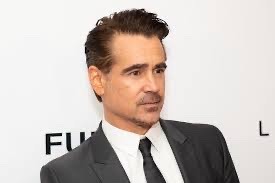
#best actor#movie#ireland#awards#film awards#colin farrell#governors#camera#cinemetography#los angeles
2 notes
·
View notes
Text

A blue state v a red state: Murica’
3 notes
·
View notes
Text
Governors Are Committing ‘Unprecedented’ Corruption-Ex-TUC President
The former president of the Trade Union Congress (TUC), Peter Esele, says corruption is endemic in states across Nigeria as the governors get away with it because Nigerians pay more attention to President Muhammadu Buhari.
Mr Esele stated this while reacting to a suggestion by governors that Mr Buhari’s regime should offer federal civil servants above 50 years a one-off retirement package to exit…

View On WordPress
3 notes
·
View notes
Text
Eπιστροφή με νέα ταινία για τον Alejandro Gonzalez Inarritu μετά το Oσκαρικό The Revenant - Cineramen
Eπιστροφή με νέα ταινία για τον Alejandro Gonzalez Inarritu μετά το Oσκαρικό The Revenant – Cineramen
FILE – Alejandro Gonzalez Inarritu arrives at the 9th annual Governors Awards in Los Angeles on Nov. 11, 2017. Inarritu inaugurated the Morelia Film Festival 2020 on oct. 28, 2020 with a restored copy of his “Amores Perros.” (Photo by Jordan Strauss/Invision/AP, File)
Βαθμολόγησε το άρθρο
Το Revenant ήταν μια από τις πιο πολυσυζητημένες ταινίες των τελευταίων χρόνων και έδωσε στον Leonardo…
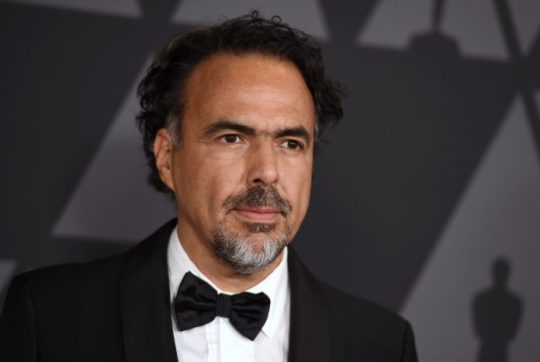
View On WordPress
1 note
·
View note
Link
From the February 7, 2024 write-up:
The partisan, cross-border swipes during the late January speech may say more about American politics in 2028 than in 2024. Many of the country’s highest-profile state executives — several talked up as likely presidential contenders in four years — are using their agenda-setting annual speeches to land blows on their counterparts in far off state capitals.
In an era where even viewership of the presidential State of the Union is declining, only the most civic-minded of voters pays any heed to governors’ State of the State addresses. But they provide a critical window into the country’s biggest policy debates — and increasingly offer evidence of its toxic, partisan political culture. States have always engaged in spirited economic and political rivalries, but increasingly, their chief executives sound like combatants from warring factions.
#governors#2028#gretchen whitmer#gavin newsom#ron desantis#kristi noem#greg abbott#jb pritzker#jared polis
2 notes
·
View notes